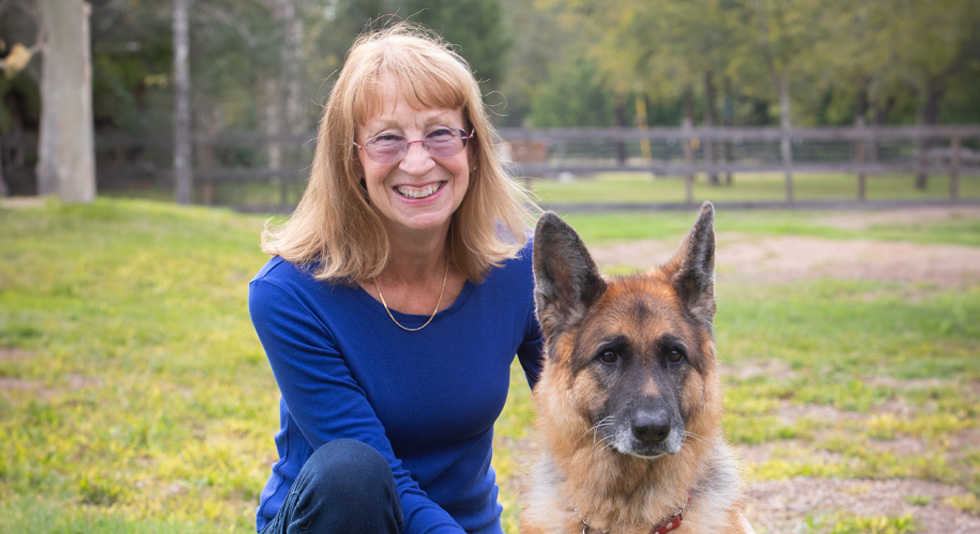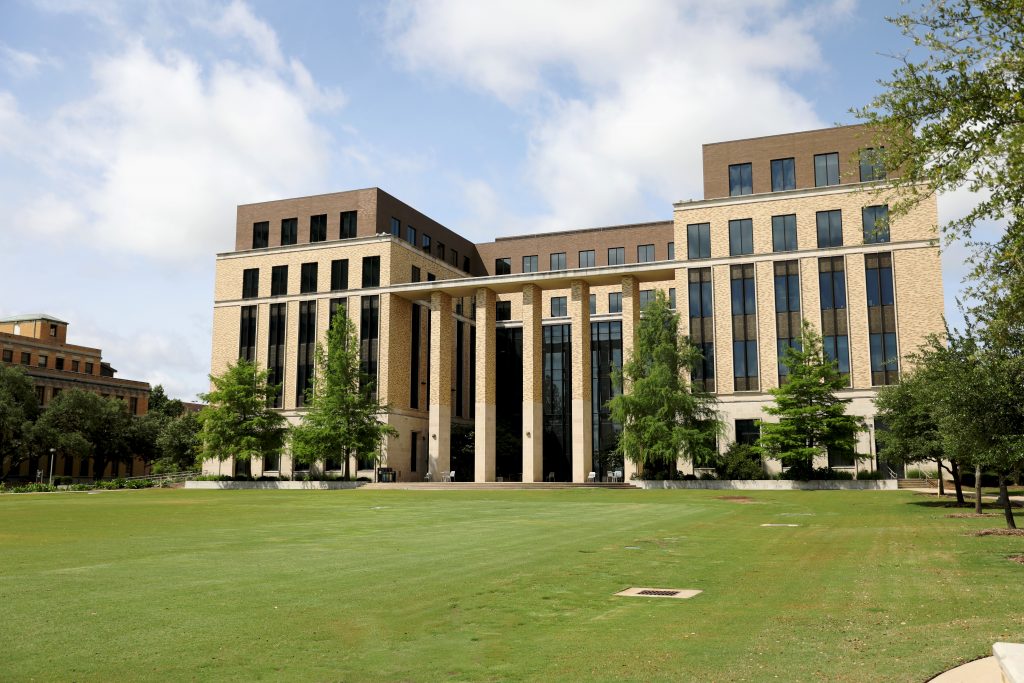
From crude cave paintings to musical notes or binary code, writing has evolved alongside human beings and helps tell our story. But what is the future of writing? Dr. Emily Johansen, head of Texas A&M University’s Department of English, believes artificial intelligence (AI) will assist us in sharing our narrative.
With a generous gift from English former student Susan V. Fontaine ’77, the English department’s forthcoming AI writing lab is poised to set Texas A&M at the forefront of research related to the intersection of writing and artificial intelligence.
“The Susan V. Fontaine ’77 AI Writing Lab Endowment in English will help us create a space for faculty and students to work together to invent the future of writing,” Johansen said. “It’s a response to conversations our faculty have had about how the rise of technology, particularly AI, is shifting our understanding of what writing does, what good writing looks like, and how we prepare students to use this technology in the workplace.”
Fontaine was captivated by the intersection of AI and writing in an academic context after speaking with Johansen and other English faculty members.

“I wanted to create this endowment for the Department of English because that was my major and I believe it’s much more diverse than most people realize,” Fontaine said. “I told them that I know nothing about AI and that it scares me. They said, ‘Well, AI is here. We’re not going backward.’”
Fontaine understands that Texas A&M has a responsibility to teach students how to use AI ethically and correctly, as well as how to identify when someone else has used it.
“It’s a necessary skillset in today’s world,” she said.
A Long-Emerging Technology
AI has a history of assisting with writing. The first spell-checking computer program was invented in 1959 and autocorrect was created in the 1990s. Text-generating software programs like ChatGPT or Perplexity, which use algorithms to respond to user prompts, are now commonplace in academia and the workplace.
“When we’re talking about a pencil, we’re talking about technology,” Johansen said. “AI has existed much longer than we remember. And while many people have a heavy dose of skepticism about it, we have little control over whether these technologies exist and who will use them.”
Johansen intends for the lab to be a place where students learn how to use AI but also how to think of writing in new and exciting ways.
“English is the de facto department on campus that houses the writing discipline, and we’re well-placed to think about and experiment with what this future could look like,” she said. “My writing faculty are thinking about how to work with these technologies: how to build them and how to customize them.”
Some of the English faculty members who will conduct research in the lab include Dr. Sarah Potvin, an associate professor who studies digital humanities and preservation, Dr. Andrew Pilsch, an associate professor whose research areas include digital rhetoric, and Dr. Jason Crider, an assistant professor who plans to use the lab to introduce students to emerging technologies through hands-on workshops.
“One such workshop, which already exists, guides students through designing their own ‘Writebox,’ a do-it-yourself writing tool he developed using a $10 single-board computer called Raspberry Pi,” Johansen said. “Through programs like this, we introduce students to alternative computing practices that inspire them to think more critically about the materiality of their digital devices and empower them to take a more active role in media consumption and composition.”
This school became my home...the people here became my family. And that’s why I want to do something to support my roots in the Department of English — where I came from at Texas A&M.
A Gift For The Future
As the daughter of a military family, Fontaine moved around often. When she was a senior in high school, she attended an Aggie football game and decided to enroll. Simultaneously, her family moved to Taiwan.
“So this school became my home during a time before mobile phones when letters came only by snail mail,” she said. “The people here became my family. And that’s why I want to do something to support my roots in the Department of English—where I came from at Texas A&M.”
Fontaine believes wholeheartedly in the department.
“English is a much more versatile and diverse major than most people realize,” she said. “Graduates pursue law, business analysis, and many communication-related fields.”
Fontaine found her perfect job in the insurance industry at a Texas A&M Recruiting Center on campus.
“I worked in insurance my entire career,” she said. “For 38 years I used my degree in ways I never expected. In this business you have to read, write and clearly comprehend and interpret complex policies that may be difficult to understand. My English degree from Texas A&M is directly related to my career success.”
Her gift will help the next generation become successful in their careers as well.
“As students graduate and move into the workforce, the soft skills they learn from humanities, such as clear and persuasive writing and communication, are increasingly important,” Johansen said. “That now includes knowing how to work with AI. These technologies are often inaccessible to students behind paywalls, so this lab will grant them access and develop AI-related skills.”

